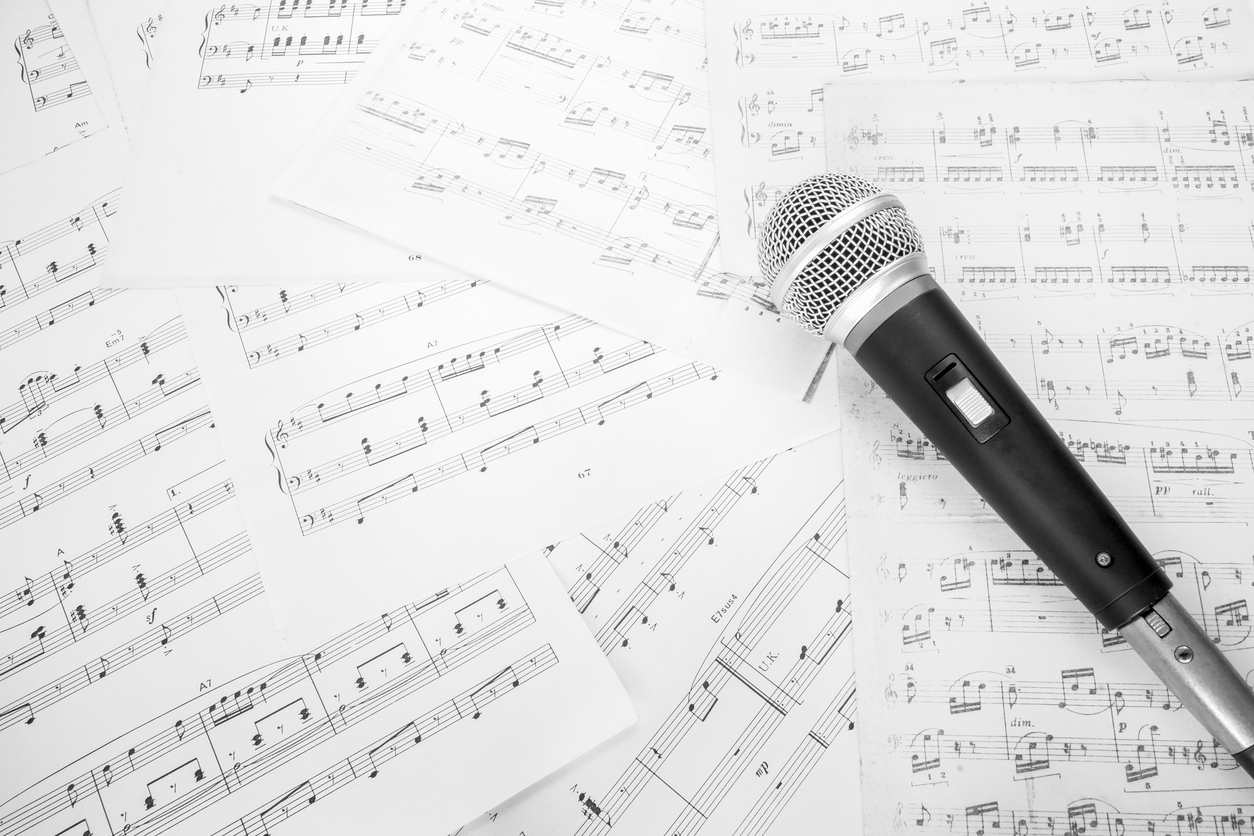Choosing a Song That’s Technically Right for You, Right Now
How do you know if a song is right for you? One of the most common mistakes I see singers of all levels make is choosing songs that are WAY too hard for them to sing, given their present level of technical ability at the time. You might be hearing your favorite artist or aria in your head and think, “I could do that”, but singing looks deceptively easy when it is done well, by people who know what they are doing. Tiger Woods can swing a golf club with great ease and accuracy, but do YOU think you can golf as well as he does? It might be time for a quick reality check. Choosing a Song That’s Technically Right for You, Right Now takes away all the guesswork!
So, how are you to know if a song is right for you or not, right NOW?
Here are some things to look for as you are trying to choose what to sing:
Range. Almost everyone knows to look at the highest note and the lowest note of a song melody, and to make sure that both are in your comfort zone vocally. One might be more comfortable than the other, especially if the song swings from low to high dramatically, so you may have to choose which spot is more visible and make your decision on what key to sing the song in from there (more about key choice later).
Tessitura. This is MUCH more important than range, but most singers don’t even know or consider this critical issue in song choice. Tessitura is an Italian word that means the average range of pitch throughout the song. Where does the melody hang out the most, and is that in your vocal “happy place? If you’re a soprano, you don’t want something that stays mostly on mid-range and low notes all the time. By the same token, if you have a low voice, you certainly don’t want to sing something that stays consistently high. Jingle Bells only has a five-note range, but could be deadly for you if it is pitched up in too high a key. See how tessitura is more important than range?
Key. Related to the range and the tessitura choice will be the actual key in which you choose to set the song. Here is where many, many singers go wrong. It has to be in a comfortable key! If it feels good, really relaxed and easy, it will sound good. If you are straining to reach notes, or if the song is “sitting” right on one of your registration transitions, its just not going to show you off to your best advantage. Really take the time to experiment, over a course of days, with the keys that you think might work for you. This is best done with a voice teacher, who can guide you to make the right decision. And remember, just because your favorite artist sang something in a certain key, it doesn’t mean it is right for you. Also, if the song is from a musical or opera, the role is written for a certain voice type, and no one auditioning singers for that show is going to change that for you. Work on it for fun in the key of your choice if you like, but you won’t be hired for it if it’s not your normal vocal range.
Conjunct or Disjunct Melody. Does the melody flow easily, with pitches that are close together much of the time (conjunct), or does the melody have lots of large intervals and leaps between notes (disjunct)? If you have trouble with vocal legato (how smoothly your air flows), jaw/throat tension, and/or registration issues as you move between the different parts of your voice, a disjunct melody is going to be much harder to navigate for you.
Tempo. Fasts songs are harder then slow songs, period. They require accurate, low breathing, vocal flexibility, very precise diction on the tip of the tongue and lips, and the ability to stay relaxed vocally, even as the notes are rolling out very quickly. Ask any singer how many slow vs. fast songs they have in their repertoire. Most singers have tons of ballads, and not so many up-tempo pieces.
Density of lyrics. Related to tempo is how many lyrics the song has, and how fast you have to spit them out. If you have a very “talky” song (lots of pop songs and modern musical theater pieces fall into this category), it ups the difficulty level for all the same reasons mentioned in the tempo section.
Difficulty of lyrics. If the song is in a foreign language, or has archaic poetry or a Shakespearean text, for example, it’s going to be much harder to learn, memorize, and sing effectively.
Length/number of verses. The longer the song, the more you have to learn, memorize and prepare for performance. ‘Nough said!
Phrase Length. Does the song have long phrases that require tons of breath and breath support? Is your breathing developed enough to handle it?
Flexibility. Does the song have lots of fast-moving notes requiring great vocal agility? Don’t pick a Handel aria if you are still working on entry-level folk songs!
Level of musicianship required. If you don’t read music well, picking something musically challenging may not be the best idea. If you can’t play your melody on an instrument yourself, or have trouble with pitch or rhythm, keeping time, or memorizing music, stick with something simpler, because you won’t be able to learn the song accurately, or in a timely manner. Having said that, there are exceptions to the rule— people with an exceptionally good musical ear may be able to learn things by rote, listening to it over and over, but that takes a lot longer. You’ll also need to have a great recording (or two or three) to listen to again and again.
Is the song appropriate? This can cover a lot of different areas. Is it age-appropriate? Don’t sing a song about being an old man and looking back at your life if you are 18 and have barely lived life yet! Is it from a role you would actually get cast for? If you are a 55-year-old mezzo-soprano, chances are you won’t be cast as the young and virginal Maria in West Side Story, who is a soprano. Is it right for the audition you are going to? Don’t sing a pop song if you are auditioning for a Gilbert and Sullivan operetta. Is it the right song for the event/group/location you got hired for? If the Ladies’ Auxiliary hired you to sing at their charity luncheon, it’s a good idea to sing something uplifting and appropriate for the occasion, not something depressing or contrary to the environment you are in.
What accompaniment is required? If a song requires a huge band, two drummers, and a slew of backup singers to work, but you’re singing in a recital with just a piano, it’s probably not the right choice, as the song won’t sound anything like what the original was without all the extra production.
Is there sheet music available? Singers come in to lessons all the time wanting to sing this or that song, but then we find out it’s something obscure, and there is no sheet music available. At that point, you have to do some digging to find out where and how you could come by the sheet music, or you may have to pay someone to listen to a recording and chart out the music for you.
As you can see, there are LOTS of things to consider when choosing a song. Of course, you can sing whatever you like for practice, to work on a certain skill, or simply for fun. But using the criteria above will guide you to success in Choosing a Song That’s Technically Right for You, Right Now!
What if you can’t choose the sing you want to sing, like getting asked to sing The Star Spangled Banner at an event? Visit my earlier post:
Oh Say, Can You Sing… the Star-Bangled Banner?
For more helpful information on singing, visit the National Association of Teachers of Singing website:







